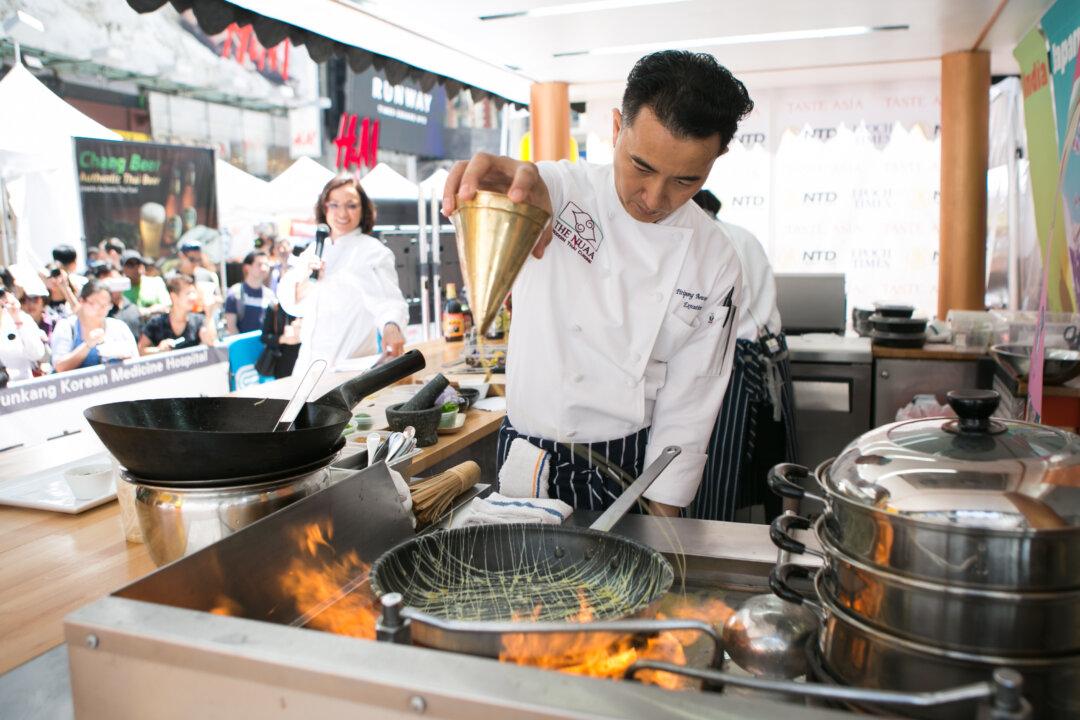NEW YORK—“Tell me what you eat, and I'll tell you who you are.” These oft-cited words from the 19th century French gourmet epicure Jean Anthelme Brillat-Savarin reflect our common desire to understand a culture through eating its food.
At Taste Asia Asian Food Fest in Times Square June 26-27, New Yorkers have a chance to learn a tonne. Between the cultural performances, cooking demonstrations from master chefs, and food vendors from the city’s popular Asian restaurants, people could get to know more than a dozen Asian countries—all in one go.






